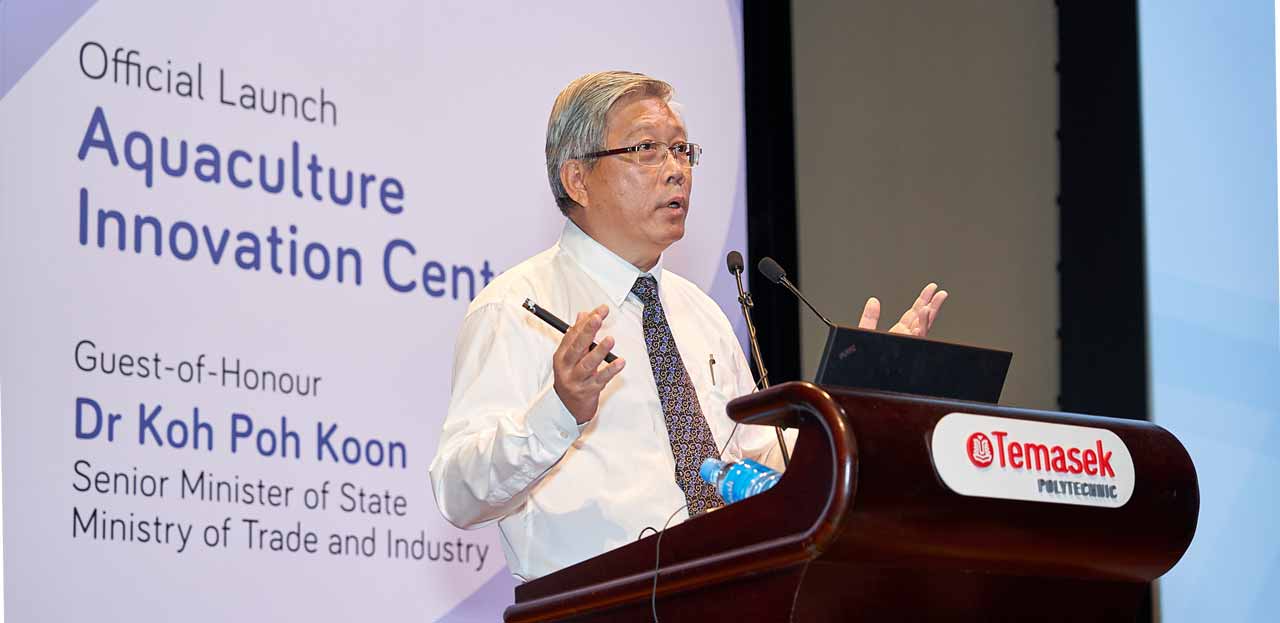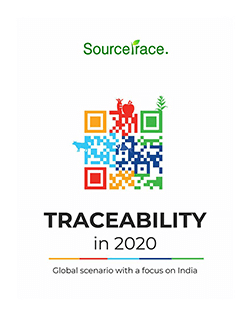Tomorrow Talks


Dr Lee Chee Wee
Director of Aquaculture Innovation Centre, Singapore
Dr Lee Chee Wee, Director of Aquaculture Innovation Centre, Singapore, is an academia and technopreneur, with more than 25 years of dynamic, hands-on experience and networking in providing technological innovation and solutions to enterprises across the globe.
Dr Lee is the immediate Past-Director of the School of Applied Science at Temasek Polytechnic. Under his leadership, the School had developed many technology capabilities and provided valuable innovative solutions and technical support to more than 150 companies. He is currently Technology Advisor of Temasek Polytechnic, Director of Aquaculture Innovation Centre and Consultant of Asian Development Bank. Dr Lee is also the Founder of Lynk Biotechnologies group of companies, focusing on transdermal drug-delivery technology.
Questions & Answers
Do you see the aquaculture sector being impacted by Covid- 19?
Just like all other industries, aquaculture too has been impacted by Covid-19. The immediate issue that comes to the forefront is food security. In the aquaculture industry, the impact of Covid-19 ranges from problems in acquiring feed, and issues in logistics to reach the farm. Unlike in agriculture, animal feed is critical. The other issue is reaching the fish to the customer, as transport and logistics have been affected as a result of the pandemic.
Singapore has been a big exporter of fish. Do you see any significant change due to concerns rising due to the pandemic?
Singapore is actually not a big exporter of fish. We don’t produce enough ourselves, but are on the path to producing at least 30 per cent of our nutritional requirement by 2030 and thus increasing our food security. Fortunately Singapore had prepared for this initiative many years ago and setting up Aquaculture Innovation Centre was part of it. Now we are in a better state of preparedness to handle a potential disruption in food supply.
Singapore practices vertical, intensive farming due to land scarcity. The good thing is that the government is actively setting up infrastructure to compensate for the shortage of land, as infrastructure is the key to farming, whether growing crops or culturing fish. During peace time, this infrastructure aids in producing high quality and high value crops and fish. But in a time of crisis, cultured species will change, ideally fish like Tilapia should be grown as its growth rate is fast and it is not a picky eater. So 30 per cent of the nutritional requirement in peacetime can be expanded to 70-80 per cent requirement in crisis-time. That could be one of the food security strategies. For India, on the other hand, land availability may not be the issue, but rather logistics, labour (surprisingly true), and/or technology adoption to reinvent traditional farming.
Firstly, "The major impact of Covid, as I see, is moving towards “cellularization”, as opposed to globalization, which means being self-sufficient within each country, sacrificing efficiency for security in the post-covid era."
Secondly,"There needs to be a shift from mono-cropping to diversification of crops. However, diversification increases the cost of farming, and may not be as efficient as mono-cropping. But it keeps a supply of diverse items running. And eventually, the farmer needs to earn a decent living, so various kinds of support must be in place to mitigate disadvantages in higher cost of production."
Thirdly, "This 'cellularization' will require farmers to increase their productivity, for which they need to rely on technology. Smart farming, with AI, IoT, sensors and robotics can show the way." Coming to global trade, technologies like traceability and blockchain can ensure food safety. What is the potential of adoption of such technology in aquaculture?
Thus far, there has already been a reasonable level of adoption, and it is multiple (block)chains cross-linking each other in a 3 dimensional way that we’re witnessing. The computing power of these adopted technologies is also going up. From 5G to 6G to quantum computing, change is coming into play. In the next 20-30 years, we can expect advancement of technology to be more overarching.
Traceability technology is ensuring food safety now, but moving forward, blockchain technology can be used to ensure not just for food safety, but food security as well. Blockchain technology will help compensate for specific, nodal problems in the supply chain, ensuring that your goods are delivered. So the potential of continuing to adopt these technologies is high.
Lately, we had seen a lot of momentum in the use of digital technologies. Do you see that pace being maintained or slowing down in the coming months?
The IT space is going to be the space for a lot of action in the coming time, because everything will be digitized to minimize physical dependency.
"Covid-19 is forcing us to hit control-alt-delete buttons and reset the order, forcing us to digitize. Thanks to Covid-19, we’re speeding into digitization at a faster rate."
Think back to remember how reluctant we were to get into teleconferencing – we preferred face-to-face meetings, but Covid-19 is forcing us to digitize at a greater speed than before. The same has happened to aquaculture. We need digitization for several of the operations, for example, even to monitor health, feeding schedules of the fish etc. This too is a visible shift into cellular agriculture for better control of production.
We have seen data-driven agriculture gain more and more traction. Among other things, cost and reach have been issues. What are the challenges for technology adoption in aquaculture?
One of the challenges is that in terms of technology adoption, there is a generation gap between the older generation farmers who practice traditional methods and the younger, digital generation. This gap needs to be bridged through technology adoption. But asking the traditional farmer to rapidly adopt technology is unrealistic – it needs someone to be a catalyst for the transformation to take place. That is the purpose of institutions like our Aquaculture Innovation Centre. We do understand that assisting farmers to adopt technologies and shift into hi-tech, digital and integrated farming will also require the introduction of new crops. Until then, we will keep the current breed of farmers going in the interest of food security. We are helping the current farmers to adopt technology to the extent possible. At the same time, we need a digital generation of people coming in to transform this industry.
We also have an eco-system called launch pad to incubate start-ups and accelerate their growth. These are full of young professionals who know what they want to do, and we guide them to understand the problems face by the industry and work toward providing solutions.
Do you see the post covid-19 world taking sustainability more urgently? What should be our immediate steps?
There is no doubt that the post-Covid-19 world has to be self-sustainable. If you look at the current scenario, food security needs to fulfill 3 criteria – affordability, safety and accessibility. I do agree that safety and accessibility are important. But affordability can at times be in conflict with the concept of food security and sustainability itself. Let me explain. Affordability is, to a great extent, made possible by the mono-cropping model which was meant to be efficient and maximize productivity to achieve lower price products. But that can be unsustainable because any disruption in the supply chain can wipe out the whole thing. For example, Singapore imports broiler chicken from Brazil, at a retail price of 3 dollars a bird. This is the price earned after 7 weeks of farming. Subtracting the cost of production, logistic, middlemen, retailing and others, the profit at farm might be just 10 cents a bird. To make this sustainable, the farmer needs to grow hundreds of thousands of birds each year, which is difficult for small operators. The poultry industry is now controlled by a few big players with a well integrated system from feed to slaughter house. For some reason if they were disrupted, there will be a shortage of poultry meat in Singapore market. This sort of food security in the guise of affordability (i.e. cheap price) is not sustainable. On the other hand, we need to encourage local production, even if it costs a little more. Consumers have to be made aware of the cost of farming and be willing to pay a higher price; so that the farmers can make a decent living to keep our food production chain robust. The farmers should be helped to improve the quality of produce so that they can demand a better profit margin.
The policy makers too need to ensure that farmers are able to make a decent living and keep local productions alive; otherwise, there might be a food shortage when the supply chain is disrupted in the event of a crisis. These are the kind of changes towards sustainability that Covid-19 is forcing us into.


